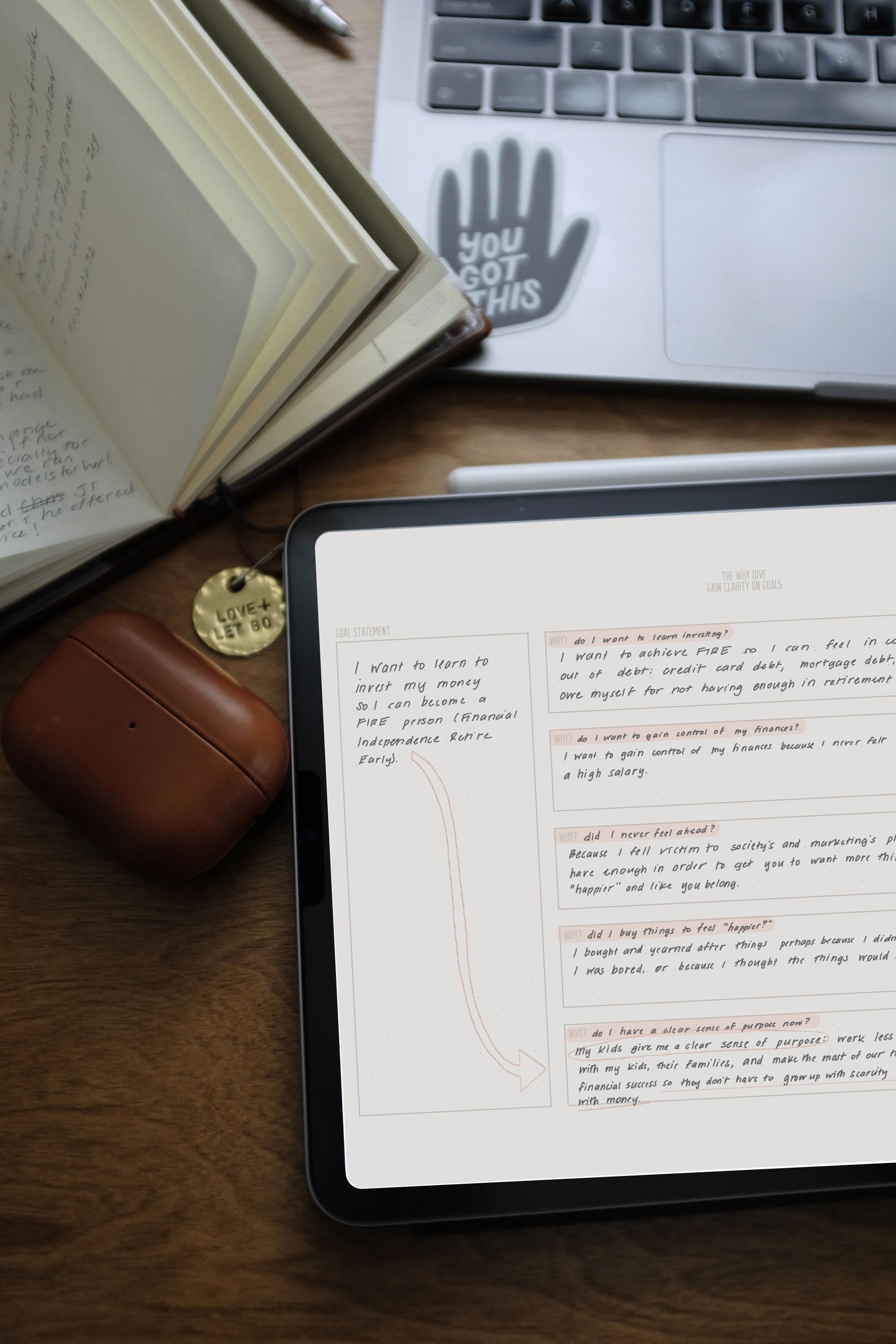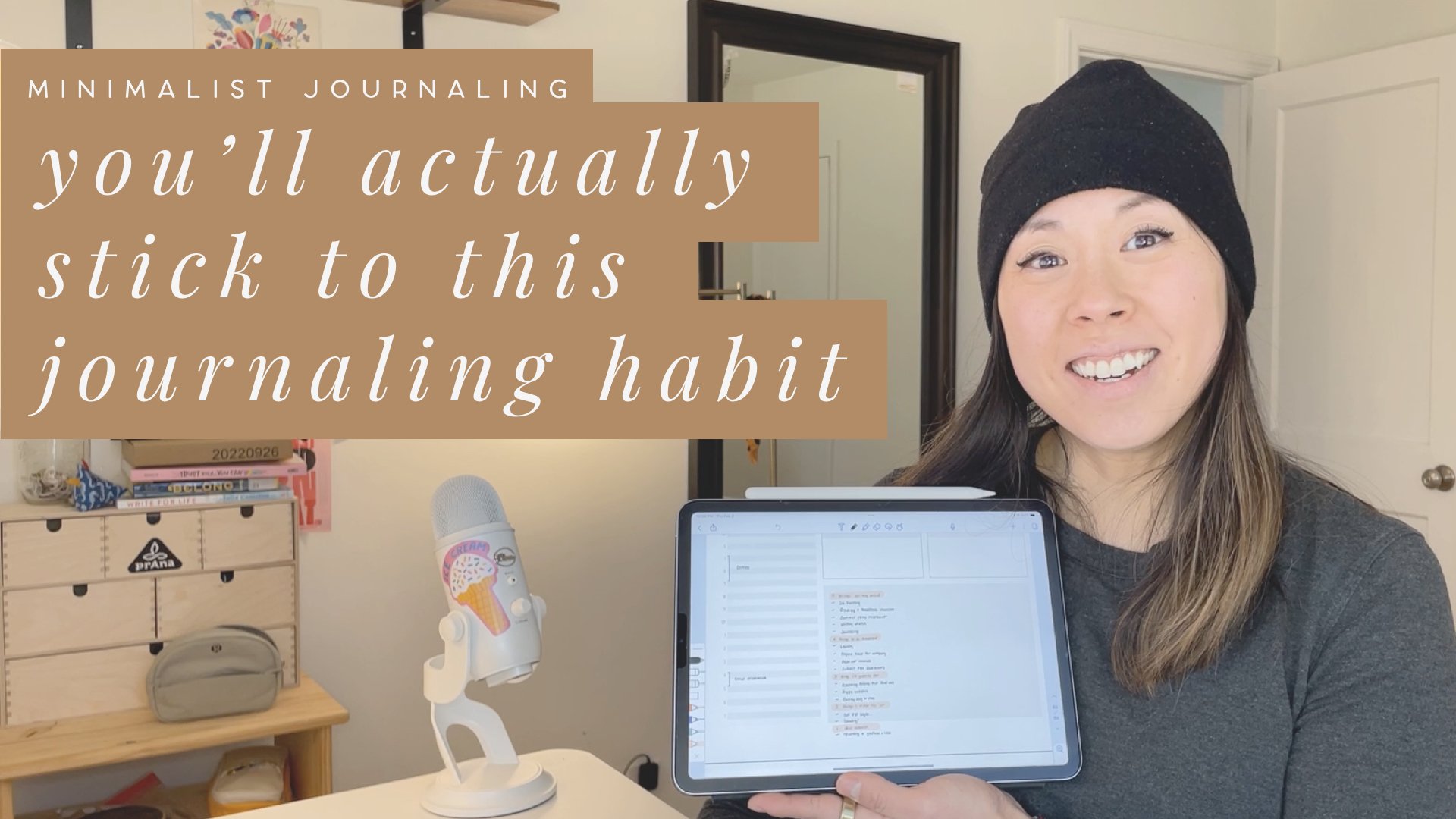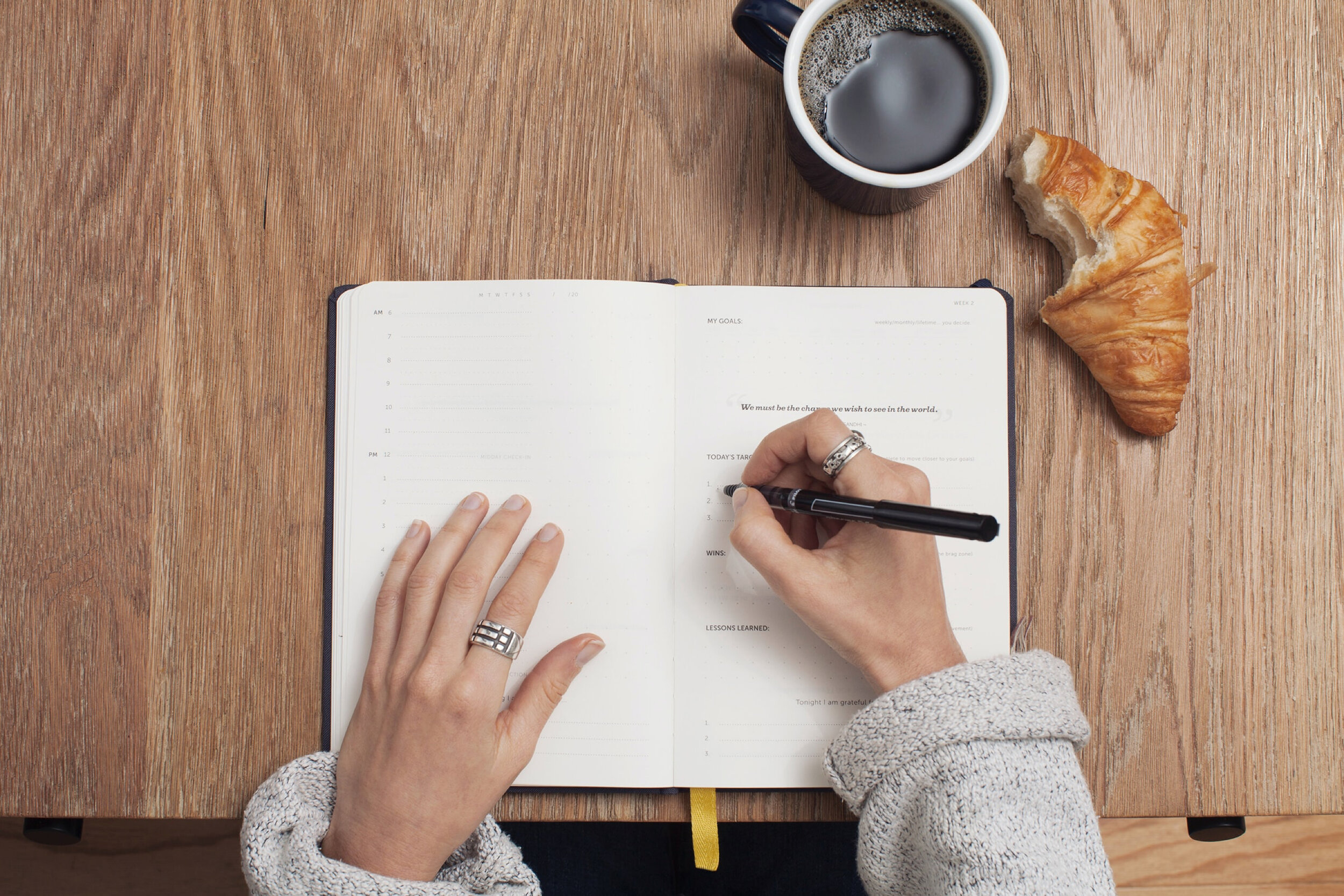The Science Behind Deep Breathing
“Take a deep breath.” Wim Hoff. Breathwork. Box breathing.
If you practice deep breathing exercises and see results, great!
But do you know the neuroscience behind deep breathing and what actually causes it to work to help you relax?
Read the post below and watch the video to learn more!
Pin for later
I started meditating in 2018 to help with a myriad of things: anxiety, focus, clarity, relaxation, insomnia, etc; but it wasn’t until I listened to Kevin Rose’s podcast featuring Stanford neuroscientist Andrew Huberman did I understand the why behind it all.
Now, I’m not a neuroscientist. I’m not a doctor. And I know enough about meditation to know that I’m not an expert or even seasoned in meditation. But with enough research, I was able to discover the why’s behind breathing that I’d like to share.
Whether you do deep breathing in your traditional meditation practice, your moving meditation practice, or even just before meals, you can totally benefit from both the practice and learning the science behind it.
Understanding the neuroscience behind deep breathing helped me to get the benefits of it from a practical standpoint, so I wanted to share that with you, and hopefully, I’ll be able to do it in a way that you can understand the mechanics behind deep breathing, too.
How the heart changes size with breathing
The key organs to deep breathing are:
The heart
The diaphragm
The brain, and of course
The lungs
When you breathe in, your diaphragm moves down to accommodate your growing lungs, which in turn makes the chest cavity bigger. Because of this, your heart grows in size a bit.
When you breathe out, the opposite happens: your diaphragm moves up to push the air out of your lungs, which makes your chest cavity smaller. Your heart will shrink in size.
What changes in heart size does
When your heart grows in size upon an inhale, your blood flow slows down.
And on the other side, when you exhale, your heart shrinks and your blood flow slows down.
This still isn’t the entire picture of why deep breathing helps with relaxation!
Your brain sends a signal to your heart to speed up or slow down blood blow
As a response to the slower blood flow, your brain sends a signal to the heart to tell it to speed up blood flow.
This can, in part, explain why when you’re doing moderate to heavy exercise, you feel more energized. The increase in in-breaths will speed up your heart. (There are other factors here, but I won’t get into that.)
So on the flip side, when you exhale and your heart shrinks, your blood flow speeds up. As a result, your brain sends a signal to the heart to tell it to slow down the blood flow.
Ding ding! This is the key to relaxation!
Why longer exhalations are the preferred deep breathing pattern for relaxation
TL;DR?
Inhale
Diaphragm moves down
Bigger chest cavity
Larger heart
Blood flow slows down
Brain tells heart to speed it up
Energy
Exhale
Diaphragm moves up
Smaller chest cavity
Smaller heart
Blood flow speeds up
Brain tells heart to slow it down
Relaxation
So because when you exhale, your heart shrinks, your blood flow speeds up, and your brain sends a signal to slow down your blood flow, this is where relaxation happens.
The prolonged exhale hacks the communication between your heart and your brain via the vagus nerve, and your blood flow slows down, signaling to your body that you’re safe, and activating the parasympathetic nervous system (allowing for digestion, repair, and rest).
Now, when you’re doing a guided meditation and are being told to inhale for a count of 4, and then build up your exhale so it goes from a count of 4 to a count of 8… now you know why!
I hope you enjoyed learning about the science behind deep breathing as much as I did. Thanks again to Dr. Andrew Huberman and Kevin Rose for the insight!
Click for Full Video Transcript
- Breath work. Box breathing. Take a deep breath. Wim Hoff method. Meditation.
- These are all really awesome and help you relax, but do you really know the science behind it? Now, let me say, I am not a scientist by any means. I am merely a consumer. However, I find that deep breathing exercises can be really powerful, but I never really understood why.
- I've been meditating regularly since about 2018. And it's really helped me with anxiety and stress, clarity and insomnia, but it wasn't until I learned recently how deep breathing controls our relaxation in our bodies and our parasympathetic nervous system, it really helped me understand the science behind the deep breathing. And it also motivated me to want to do it even more because I knew why it was working heavy.
- Hello, I'm Jenn Palandro. Hello Brio is a community of conscious creatives. And if that sounds like you made sure to hit like on this video and subscribe to the channel for a weekly-ish videos about intentional living.
- So I'm going to give a really broad overview of this concept. The key players in your body that correspond with deep breathing and relaxation are your brain, your heart, your lungs, and your diaphragm.
- So what happens is when you take a deep breath in your diaphragm moves down, which expands the chest cavity, which also allows your heart to get bigger. So when your heart gets bigger, the blood flow slows down. And then as a response, your brain will send a signal to your heart saying, you know, the blood flow slowing down. We need to speed this up a little bit. So this is why exercise and getting up and moving around and really making sure that you're getting that oxygen that you need is so energizing.
- And on the flip side, I'm sure you can see what's coming. As you breathe out, your diaphragm moves up. Your chest cavity gets smaller. Your heart also changes size and get smaller. And the blood flow speeds up. And as a response, then your brain is going to send signals to your heart saying, no, no, we need to slow the blood flow down. So that is why deep breathing is going to help you relax. It's really on the side of the exhalation.
- I've been doing a lot of guided meditations, et cetera, and they all talk about, you know, take a deep breath in, but then take a longer deep breath out. So let's say take a deep breath in for four seconds and then take a deep breath out. You want to match that to four seconds. And then they also ask you to elongate that four seconds as you progress. So try four seconds in six seconds, out four seconds in eight seconds out. And then really by doing that we're second and eight second out breath.
- You're focusing on the out-breath, which is going to give you a higher ratio of relaxation breathing as you breathe out. So again, you breathe in your diaphragm moves down, lungs get bigger. Chest cavity gets bigger. Heart gets bigger. Blood flow slows down. Your brain sends a signal to your heart to speed up the blood flow.
- And on the opposite end, when you breathe out, your chest cavity gets smaller because your diaphragm moves up. Your heart gets smaller. Blood flow speeds up, and your brain segment sends a signal to your heart to let it slow down. And that communication between the brain and the heart is all done by the vagus nerve.
- As your blood flow slows down and you are more relaxed to this signals to your body that you are safe. From an evolutionary standpoint, you're no longer being chased by a tiger or a bear or something like that. It signals to your body that you're in a safe environment, and you can go back to that parasympathetic nervous system where your body can digest, better, relax, better restore itself, and also get some rest.
- So now when you're doing guided meditations and they tell you to breathe in for a certain pattern and out for a certain pattern, usually with a longer exhalation, you know why.
- I would love to know what are some of your favorite breathing patterns for deep breathing and relaxation. Let me know by commenting below. And if you want to learn more about this method, I go a little bit more into detail in my blog posts, which is also linked below. I'll see you next week.
What’s your favorite deep breathing pattern and practice? Comment below!


![How I journal on my iPad in Notability [2025]](https://images.squarespace-cdn.com/content/v1/603fd2e6b89a792feb000f9c/1675357907805-TSRYCEN9KUN66DNMHOLN/IMG_6041.JPG)








